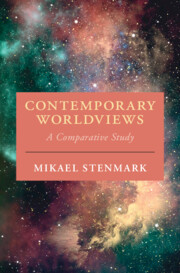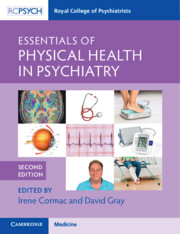Refine listing
Actions for selected content:
1299800 results in Books
The Irish Pope
- Paul Cullen, 1803-1878
- Coming soon
-
- Expected online publication date:
- May 2026
- Print publication:
- 31 May 2026
-
- Book
- Export citation
The Mysteries of Modern Life
- Mystery Fiction, Popular Narrative, and the Politics of Vision
- Coming soon
-
- Expected online publication date:
- May 2026
- Print publication:
- 31 May 2026
-
- Book
- Export citation
The Constitution of 1789
- A New Introduction
- Coming soon
-
- Expected online publication date:
- May 2026
- Print publication:
- 31 May 2026
-
- Book
- Export citation

Aboriginal and Torres Strait Islander Education
- An Introduction for the Teaching Profession
- Coming soon
-
- Expected online publication date:
- May 2026
- Print publication:
- 01 May 2027
-
- Textbook
- Export citation
Between Ethics and Economics
- A Moral Leeway Approach to Business Ethics
- Coming soon
-
- Expected online publication date:
- May 2026
- Print publication:
- 31 May 2026
-
- Book
- Export citation

Rebuilding an Ecosystem
- Integrating Applied Research and Restoration
- Coming soon
-
- Expected online publication date:
- May 2026
- Print publication:
- 31 May 2026
-
- Book
- Export citation
Fashion and Literature
- Coming soon
-
- Expected online publication date:
- May 2026
- Print publication:
- 31 May 2026
-
- Book
- Export citation
Animals, Speech and Reason in the Middle Ages
- Coming soon
-
- Expected online publication date:
- May 2026
- Print publication:
- 31 May 2026
-
- Book
- Export citation

Marine Technology, Ocean Development and the Law of the Sea
- Coming soon
-
- Expected online publication date:
- May 2026
- Print publication:
- 31 May 2026
-
- Book
- Export citation
Beyond the War
- Argentines and Islanders in an Unknown Falklands
- Coming soon
-
- Expected online publication date:
- May 2026
- Print publication:
- 31 May 2026
-
- Book
- Export citation

Accelerating Deep Neural Networks
- Coming soon
-
- Expected online publication date:
- May 2026
- Print publication:
- 31 May 2026
-
- Book
- Export citation
Totalitarian Money?
- The Case against Central Bank Digital Currencies
- Coming soon
-
- Expected online publication date:
- May 2026
- Print publication:
- 31 May 2026
-
- Book
- Export citation
Los Angeles
- A Literary History
- Coming soon
-
- Expected online publication date:
- May 2026
- Print publication:
- 31 May 2026
-
- Book
- Export citation
Demobilising the Far Right
- Patterns and Processes from Demonstration Campaigns in Germany, England, and Austria
- Coming soon
-
- Expected online publication date:
- May 2026
- Print publication:
- 31 May 2026
-
- Book
- Export citation

Contemporary Worldviews
- A Comparative Study
- Coming soon
-
- Expected online publication date:
- May 2026
- Print publication:
- 31 May 2026
-
- Book
- Export citation

The Cambridge History of American Popular Culture
- Coming soon
-
- Expected online publication date:
- May 2026
- Print publication:
- 31 May 2026
-
- Book
- Export citation

The Dum-Dum Bullet
- A Lethal History, 1850–1950
- Coming soon
-
- Expected online publication date:
- May 2026
- Print publication:
- 31 May 2026
-
- Book
- Export citation

Essentials of Physical Health in Psychiatry
- Coming soon
-
- Expected online publication date:
- May 2026
- Print publication:
- 31 May 2026
-
- Book
- Export citation
The Origins of Great Power Rivalries
- A Rational Theory of Principled Motivations, and Historical Context
- Coming soon
-
- Expected online publication date:
- May 2026
- Print publication:
- 31 May 2026
-
- Book
- Export citation

Vasari and the Sacred Image
- Renovating Santa Maria della Pieve in Arezzo
- Coming soon
-
- Expected online publication date:
- May 2026
- Print publication:
- 31 May 2026
-
- Book
- Export citation
